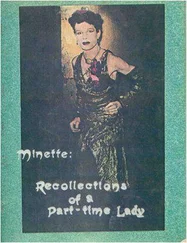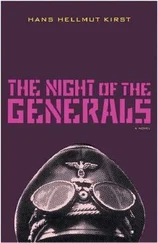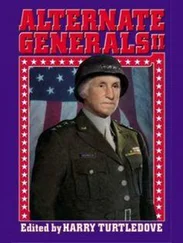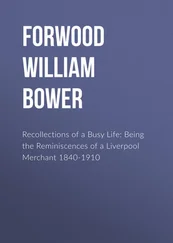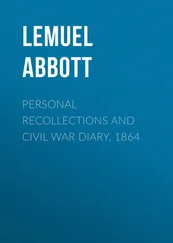William Shanks - Personal Recollections of Distinguished Generals
Здесь есть возможность читать онлайн «William Shanks - Personal Recollections of Distinguished Generals» — ознакомительный отрывок электронной книги совершенно бесплатно, а после прочтения отрывка купить полную версию. В некоторых случаях можно слушать аудио, скачать через торрент в формате fb2 и присутствует краткое содержание. Жанр: foreign_antique, foreign_prose, на английском языке. Описание произведения, (предисловие) а так же отзывы посетителей доступны на портале библиотеки ЛибКат.
- Название:Personal Recollections of Distinguished Generals
- Автор:
- Жанр:
- Год:неизвестен
- ISBN:нет данных
- Рейтинг книги:5 / 5. Голосов: 1
-
Избранное:Добавить в избранное
- Отзывы:
-
Ваша оценка:
- 100
- 1
- 2
- 3
- 4
- 5
Personal Recollections of Distinguished Generals: краткое содержание, описание и аннотация
Предлагаем к чтению аннотацию, описание, краткое содержание или предисловие (зависит от того, что написал сам автор книги «Personal Recollections of Distinguished Generals»). Если вы не нашли необходимую информацию о книге — напишите в комментариях, мы постараемся отыскать её.
Personal Recollections of Distinguished Generals — читать онлайн ознакомительный отрывок
Ниже представлен текст книги, разбитый по страницам. Система сохранения места последней прочитанной страницы, позволяет с удобством читать онлайн бесплатно книгу «Personal Recollections of Distinguished Generals», без необходимости каждый раз заново искать на чём Вы остановились. Поставьте закладку, и сможете в любой момент перейти на страницу, на которой закончили чтение.
Интервал:
Закладка:
The peculiar formation of Sherman's head shows his great development of brain. His forehead is broad, high, and full, while the lower half of his face and head are of very diminutive proportions. In a person of less physical strength and vitality, this great preponderance of the mental over the physical powers would have produced perhaps actual lunacy. The head of Sherman is of the shape peculiar to lunatics predisposed to fanciful conceptions. There is too much brain, and in Sherman it is balanced and regulated only by his great physical development. Sherman's brain, combined with bad health, would have produced lunacy; his brain and sinewy strength combined produced his peculiar mental and physical nervousness. Had he been a sedentary student instead of an active soldier, the last line of Dryden's poem might also have applied to him, and we should know of him only as an "o'er informed tenement of clay." 1 1 "A fiery soul, which, working out its way, Fretted the pigmy body to decay, And o'er informed the tenement of clay."
When this report of his lunacy was first circulated, Sherman was much chagrined at it, and often referred to it in bitter terms. Time and success have enabled him to frown it down, and justified him in laughing at it. He once laughingly referred to this report about himself, and the rumor which simultaneously prevailed regarding Grant's drunkenness during the battle of Shiloh as illustrative of the friendship existing between them. "You see," he said to a gentleman, "Grant stood by me when I was crazy, and I stood by him when he was drunk."
During the siege of Corinth he commanded the right wing of Thomas's corps, while T. W. Sherman, of Port Royal memory, commanded the left. The latter was very unpopular with his division on account of a painfully nervous manner and fretful disposition, and the officers of the command discussed him critically with great freedom, many condemning his manner as offensive. One day General W. T. Sherman was visiting General Steedman – then a brigade commander in T. W. Sherman's division – and the latter's name was brought up, Steedman giving a very ludicrous account of Sherman's conduct.
"Oh!" said William Tecumseh, "this is the crazy Sherman, is it?"
Great difficulty was found during the operations before Corinth in distinguishing the two Shermans. The soldiers solved the problem by giving each Sherman a nickname. T. W. Sherman was called "Port Royal Sherman," in allusion to his services in South Carolina, while W. T. Sherman was known by the somewhat inappropriate title of "Steady-old-nerves," in contradistinction to the other, who, as before stated, was more timidly nervous. Mr. Lincoln, with some recollection of this coincidence of names on his mind, asked General Grant, on being introduced to General Sherman, if he was W. T. or T. W., and laughed with boyish glee at the "joke on Sherman."
As another natural result of Sherman's nervous energy, he has acquired the habit of decision in the most perfect degree, and his peculiar organization has tended to make him practical as well as petulant. He never seems to reason, but decides by intuition, and, in this respect, has something of the mental as well as bodily peculiarities of the gentler sex, who are said to decide intuitively. But Sherman is by no means a woman – he would have been a shrew had he been – and possesses not one particle of the sex's beauty or gentleness. Sherman jumps at conclusions with tremendous logical springs; and, though his decisions are not always final, they are in effect so, for, if he is forced to retire an inch, his next jump will probably carry him forward an ell. Facts are the only argument which prevail with him, and the best arguments of wise men are wasted in endeavoring to convince him without undeniable facts at hand. Obstinate, and vain, and opinionated as he is, and indisposed as he may be to listen to or heed the arguments of equals or inferiors, he never hesitates to sink all opposition before the orders of his superiors, and pay the strictest deference to their views when expressed authoritatively.
I have before said this nervousness of mental and bodily organization was the main-spring of Sherman's character. From it result not only his virtues, but his faults, and as man and commander he has many. He is as petulant as a dyspeptic; excessively gruff, and unreasonably passionate. His petulance does not, however, prevent his being pleasant when he is disposed; his gruffness does not destroy all his generosity, and his passionate moods are usually followed by penitence. His fits of passion are frequent but not persistent, and, though violent, are soon appeased.
His gruffness often amounts to positive rudeness. While in command at Louisville in 1861, the wife of the rebel commander Ingraham passed through the city en route to the South. The lady, who was rebelliously inclined, pleaded consumption as her excuse for wishing to inhale the Southern air. Sherman gruffly advised her to "shut herself up in a room and keep up a good fire – it would do her just as much good." He often replies in this petulant tone to both sexes, particularly if the person addressed has no business of importance.
He once took great offense at having his manners, and particularly this habit of gruffness, compared to the manners of a Pawnee Indian, and expressed his contempt for the author of the slur in a public manner. He was much chagrined shortly after to find that the correspondent who had been guilty of the offensive comparison had heard of his contemptuous criticism, and had amended it by publicly apologizing to the whole race of Pawnees!
During the battle of Bull Run, where General Sherman commanded a brigade, he was approached by a civilian, who, seeing him make some observations without the aid of a field-glass, proffered him the use of his own. Sherman turned to the gentleman and gruffly demanded,
"Who are you, sir?"
"My name is Owen Lovejoy, and I am a member of Congress."
"What are you doing here? Get out of my lines, sir – get out of my lines."
Nothing satisfied Sherman but the immediate retreat of the member of Congress to the rear.
I have heard that Sherman's bad temper was the cause of his leaving his chosen profession of the law. After resigning his commission in the army in 1853, he became, after several changes, a consulting lawyer in the firm of his brothers-in-law, the Ewings, at Leavenworth, Kansas. He had entered into the copartnership with the distinct understanding that he was not to be called upon to plead in the courts; for, though possessing a thorough knowledge of legal principles, a clear, logical perception of the equity involved in all cases, and though perfectly au fait in the authorities, he had no confidence in his oratorical powers. He was not then the orator he has latterly become, and utterly refused to take any part in legal debate or pleadings. One day a case came up in the Probate Court of Kansas requiring immediate attention. Tom and Hugh Ewing were busy; McCook was absent, and Sherman was forced, nolens volens , to go into court. He carefully mapped out his course until it looked like plain sailing; laid down his plan of procedure, as he used subsequently to do his plans of marches; but he was destined to be driven from his chosen route, not by a Joe Johnston or "foeman worthy of his steel," but by a contemptible, pettifogging lawyer, with more shrewdness than honesty, and more respect for the end to be attained than the means to be used. In the debate which the trial involved, Sherman lost his temper, and, consequently, his case. He returned to his office in a towering rage, dissolved the partnership with his brothers-in-law, and, without farther hesitation, accepted the presidency of the Louisiana Military Academy, the proffer of which he had received a day or two before.
Читать дальшеИнтервал:
Закладка:
Похожие книги на «Personal Recollections of Distinguished Generals»
Представляем Вашему вниманию похожие книги на «Personal Recollections of Distinguished Generals» списком для выбора. Мы отобрали схожую по названию и смыслу литературу в надежде предоставить читателям больше вариантов отыскать новые, интересные, ещё непрочитанные произведения.
Обсуждение, отзывы о книге «Personal Recollections of Distinguished Generals» и просто собственные мнения читателей. Оставьте ваши комментарии, напишите, что Вы думаете о произведении, его смысле или главных героях. Укажите что конкретно понравилось, а что нет, и почему Вы так считаете.

